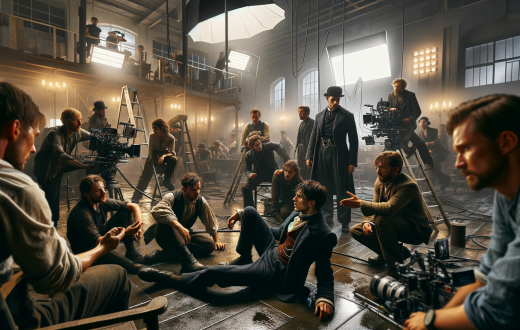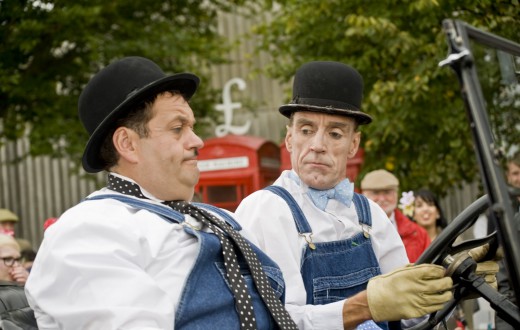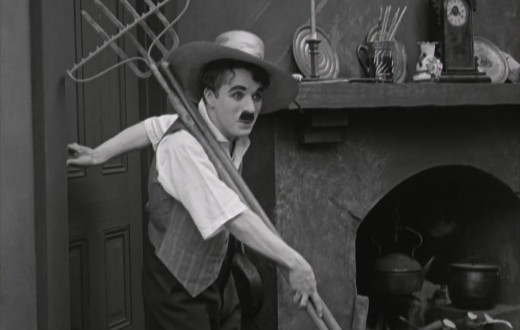Get the skinny on commercial print work with agent Joe Thompson of Abrams Artists
Go ahead and step on the sliding scale of the commercial print world. See how you measure up… do you have a marketable look?
It’s all about the look, says commercial print agent Joe Thompson. And, at times a person’s look tends to be in.
For over eight years, Joe Thompson has worked in the commercial print department at Abrams Artists Agency in New York City. He finds faces for casting directors, lifestyle clients, pharmaceutical clients and some catalogue projects. And he enjoys meeting new people, which is essential for his business since the needs vary greatly.
Commercial print work is unbalanced, Joe says. There is no formula and it’s not consistent. A person could have a certain level of confidence or an aura that clients respond to and get put on first refusal for a couple projects in a row. But then it may quiet down for a while before picking up again. It’s like a sliding scale because there is not rhyme, reason or set time of year that is busier than any other.
Your chance of booking commercial print work depends on so many different facets.
To help NYCastings members learn more about the print process, Joe Thompson shared the ins, outs, and what it takes to get started…
How can NYCastings members get involved with print work?
To get started they really just need a headshot. You need to have a very accurate headshot, a very strong representation of what you are, because that is going to act as your business card, per say. You want to make sure the image we see is who walks through the door. I don’t want to see a headshot that is ten years old from high school if you are now a father of three or a cheerleader picture if you are a Mom in her thirties. Look at people in your age range and see what they are being booked for.
Should actors make their own print books, or comp cards?
I think initially everyone needs to focus on having a strong and accurate headshot to get them in the door with an agency or casting director. As people begin working and collecting images from each photographer or tearsheets from jobs they have booked, I would then suggested compiling a comp card. Having a portfolio of your body of work is nice to have. However, due to the volume and timing of print castings, clients do not usually request seeing them at go-sees; instead they will often ask for a comp card (which should show the client your versatility).
How can a person determine their type of look?
People need to take a hard honest look at and compare themselves to people in magazines and various print ads. You can even take a snapshot of yourself and go through different books and say does this person looks like me.’
Some people think they are appropriate for upscale and fashion campaigns; and that’s not what their look normally books. Ask yourself… are you the 20 something woman who is more of a character actress and gets booked for the best friend for a commercial or stage work? If so, you aren’t going to book a Maybelline campaign that typically books the 14-16 year old girl from an Eastern European country with a very distinct look. However, that girl isn’t going to book the All-American role for a more commercial product. So it’s important to break it down for yourself.
What should actors know about print work?
Many actors never realized that there is a whole print component out there and that its one of the least stressful casting processes because it’s all about the look. Either you fit the look they want or you don’t. It’s the one area of the business you can’t beat yourself up for. It’s different for TV commercials because you may not connect with the product or believe what you were saying and that affects the audition. But for print you go in, take a couple digitals, and you walk out the door. If they don’t think you are the right look, they don’t call you. Booking a print job is kind of like winning the lottery.
Do you work with mainly models or actors?
It’s a combination. Actors are wanted, as well as someone who is a model person, because they want people who can show emotion and have a range. It’s not about wearing clothing. It’s about selling a product. So they want people who can do that, you have expressive eyes or faces. For different pharmaceutical you may need to look depressed or in pain. You may need to look elated because your cell phone bill is so much cheaper since you switched to a new product. A lot of actors book commercial print because they bring a wider range of emotion.
For print auditions, should you dress the part?
Mainly you go in neat and presentable because they usually give you a number to hold in front of your chest. They take a digital of you and usually they shoot from your chin to the top of your head. So, if you’re going in as a dad or a business worker you can wear a sports coat. For a skin care product they may want to see you in a tank top to make sure your skin is evenly toned or to see muscularity. But for the most part it’s a tight shot so you don’t have to dress head to toe.
Is there a certain type’ that books print work more often?
All types get booked because there are many different people who make up a photo shoot. Verizon could shoot something with different cultures of the world. There can be three generations at once with a grandmother getting a treatment and her daughter and grandchildren talking to a doctor. Or it can be a schizophrenic ad in a waiting room and they may need five distinct looks. So, you don’t want all the same people.
For on-camera commercial work an actor can meet agents, CDs, etc at 1:1 events and seminars. How does it work on the print side?
It’s the same thing. You go to interviews, places that connect agents with talent, and you do your homework. It’s important for people to know who the players are and which agencies have commercial print departments. Find out if they have print departments and if they do fashion or commercial work so you don’t submit your material to the wrong person.
At these 1:1 events, what can a person learn about their commercial print potential?
Sometimes there is a Q&A, or 3-5 minutes with each agent, and we will tell you what we like about your picture, what we don’t like, and what your strengths are. We will also look at your special skills. If you can juggle, or walk on your hands, we remember that because it’s something unique.
Not everyone will be right for every agency and if you don’t get a call the next day it doesn’t mean I didn’t like your look. I may not have a need for a particular person because I already have six people just like them. You could have a marketable look yet I, particularly, can’t use you at this time for any number of reasons.
Once an actor meets you, should they keep in touch?
It’s good for me to know you are out there. I want to know if you are taking classes, doing things outside of print. I want to know that people are booking you and your level of marketability. How do people perceive you? Are you booked as the best friend on an upcoming episode of Ugly Betty or are you the victim on Law and Order? It shows what people see you as and that they are hiring you. That’s important.
Also, keep me informed because I may lose someone who gets a job in LA, or goes on tour, and that can make room for me to add someone else.
How should people reach out to you?
Postcards are great. I prefer them
Why do you enjoy print work?
I like meeting people and it’s always nice to be the person who can connect the pieces. When I get the breakdowns that go to different agencies and supply the person who books the job it’s a great sense of satisfaction. I also like the turn around, being able to flip through a magazine and know that person is there because I thought they would be a good fit for it. It validates what we do and the potential we see in people.
And he really enjoys meeting people and finding the right look for his projects.
How do you find new talent? Do you pull actors from other parts of Abrams Artist?
We work with talent from the various departments and we also go to scouting events or even see people on the street who have a unique look. Print works on volume so we need to have access to many different people. I’d rather a casting agency be able to get many options from my agency than go elsewhere so I get great people that they need.
Do you work with particular casting directors or does it vary?
We work with a lot of casting directors and get a lot of repeat business. Most casting directors have an idea of whom we represent and depending on the type of job they are working on they will call. It depends. If they are working on a job that’s editorial, they may go to an agency that’s more fashion driven. If a casting director is working on Meineke, they will want a person who looks like they can do a blue collar job.
Do you sign or freelance?
Print is all on a freelance basis. There is no set contract because there are no unions. Rates are always different from job to job. Fashion agencies tend to be the ones who sign or work under contract.
Are there any misconceptions about print work?
When people initially hear print modeling’, they think high-fashion and don’t take into account the lifestyle, pharmaceutical, and commercial print. Many jobs do not fall under high fashion. That’s why doing your homework and research is good.
Is commercial print more or less competitive than on-camera commercial work?
It’s equally as competitive because you have less control over it. And it’s a different type of competitive because it’s not what you bring to the table in terms or your acting skills or your booking rate. When you go in to audition everyone is on the same footing because you don’t know what the client is going to respond to. If they are doing a casting for a 20 something jock for Gillette, they are seeing a lot of different people. They are seeing models as well as people who are simply fit. They may see 500 people and decide on someone who is more muscular or leaner; taller or shorter.
What inspirational advice can you offer to those looking to breaking into the print biz?
Be patient because you never really know what a client will go for. There is no formula and it changes. Sometimes they like one person’s energy and that shifts who will get booked around that person.
Also, be patient because you are probably not going to walk in and book your first gig. Sometimes you may walk in for the first time and a casting director can think you have such a great look. Why haven’t I seen you before?’ But that doesn’t mean you are going to book the job. It means you are a fresh face and hopefully they will remember you and bring you back in. Sometimes it takes a few auditions before you book that job.







